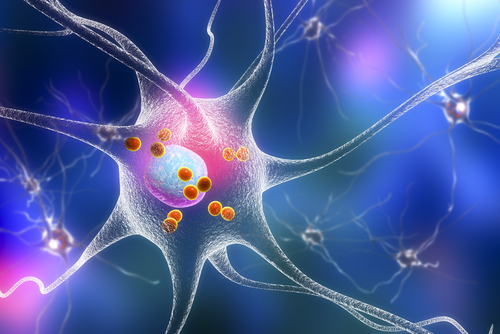This post was originally published on this site Addressing fundamental questions about the possibility that Alzheimer’s disease might be brought about by infections, Alzheimer’s Germ Quest has released a series of eight videos, each about one minute long. Alzheimer’s Germ Quest supports research into the prospective infectious quality of the disease the Alzheimer’s Association says affects…
About Alzheimer’s Disease
Walking into a room and forgetting why you went into the room is normal. Walking into a room and forgetting what room you are in is not normal. Alzheimer’s disease is the most common form of dementia and affects one in ten people over the age of 65. Unfortunately, the exact cause of Alzheimer’s disease is not fully understood however leading scientific experts in the field attribute the illness to the irreversible and progressive generalized degeneration of the brain. Alzheimer’s disease goes well beyond the forgetfulness that may accompany aging, and typically first signs include difficulty remembering current information or performing new tasks. Ongoing hallmark symptoms include impaired memory function, difficulty performing everyday tasks, and neurobehavioral abnormalities. Currently, there is no known cure for Alzheimer’s disease, and multi-disciplinary treatment focuses on symptom management and limiting progression.
Conditions
Alzheimer’s News
Gum Disease Bacteria May Play Role in Alzheimer’s Disease Development, Study Suggests
This post was originally published on this site Porphyomonas gingivalis, a bacteria that causes a type of gum disease known as chronic periodontitis, was found in the brains of Alzheimer’s patients, providing evidence of its possible role in the disease’s development, a study reports. The release of toxic enzymes from this bacteria was blocked by…
Alzheimer’s Association Funds 2-Year Extension of Study that Explores Intensive Blood Pressure Treatment on Dementia Risk
This post was originally published on this site The Alzheimer’s Association has funded a two-year extension of the SPRINT-MIND study — SPRINT MIND 2.0 — to further explore the role of intensive treatment to lower blood pressure and the risk of dementia. The funding, which totals more than $800,000, will allow researchers to follow the participants of the original…
Poor Sleep Quality in Older People Linked to Early Signs of Alzheimer’s
This post was originally published on this site People 60 or older with a disrupted pattern of deep sleep — the one that helps memory formation — have a higher accumulation of the Alzheimer’s hallmark tau protein in their brains, a study reports. These findings highlight how poor-quality sleep later in life is a potential sign…
African-Americans with Alzheimer’s Have Lower Expression of 2 Common Biomarkers, Study Finds
This post was originally published on this site African-Americans have lower expression of two biomarkers of Alzheimer’s, suggesting a possible race-dependent biological mechanism that contributes to the development of the disease, a study shows. This discrepancy between African-American and white patients is particularly relevant for those who carry the ApoE4 variant of the ApoE gene. The study,…
Top 10 Alzheimer’s Disease Stories of 2018
This post was originally published on this site Throughout 2018, Alzheimer’s News Today brought you stories of important discoveries, treatment developments, clinical trials, and other events related to Alzheimer’s disease. As we look forward to providing more news to those living with Alzheimer’s as well as their family members and caregivers this year, here are the 10…
Choline-enriched Diet May Help Reduce Alzheimer’s Risk Across Generations, Mouse Study Finds
This post was originally published on this site A maternal diet supplemented with choline, an essential nutrient, reduced the number of amyloid plaque deposits and improved memory across two generations of a mouse model of Alzheimer’s disease, a study reports. These findings support the long-lasting effects of dietary choline and suggest that a maternal choline-rich diet…
Genentech Halts Phase 3 Trials Testing Crenezumab for Early Alzheimer’s Disease
This post was originally published on this site Two Phase 3 trials — CREAD 1 and CREAD 2 — evaluating crenezumab as a therapy for early Alzheimer’s disease have been discontinued, Genentech announced. The decision was based on an interim analysis by an independent data monitoring committee that ruled that crenezumab was unlikely to meet its…
Epigenetic Therapy Restored Memory, Cognitive Function in Mouse Model of Familial AD
This post was originally published on this site Using a new type of approach called epigenetics, researchers were able to temporarily rescue memory and cognitive function in a mouse model of Alzheimer’s disease. The study showed that epigenetic changes — external modifications to DNA to turn genes on or off without changing the actual DNA…
Anti-epileptic Therapies Linked to Longer Hospital Stays in Alzheimer’s Patients, Study Reports
This post was originally published on this site Alzheimer’s disease patients who take anti-epileptic therapies have a higher number of accumulated days spent in the hospital than those not prescribed this type of medication, a study reports. The study, “Antiepileptic Drugs and Accumulation of Hospital Days Among Persons With Alzheimer’s Disease,” was published in The…
UB-311 Vaccine Safe, Effective in Mild Alzheimer’s Patients, Phase 2a Trial Suggests
This post was originally published on this site United Neuroscience’s Alzheimer’s vaccine candidate UB-311 was found safe and well-tolerated, triggering an antibody response against beta-amyloid in most of the patients, according to Phase 2a trial results. “These early results suggest a clinical response and support the continued and rapid development of UB-311. The intent of this Phase 2a study was…
Stroke Medicine May Prevent Beta-Amyloid Accumulation in Early Alzheimer’s, Mouse Study Shows
This post was originally published on this site A medicine being developed to treat stroke patients may help protect the brain from Alzheimer’s disease by suppressing the accumulation of toxic amyloid-beta during the early stages of the disease and preventing memory loss, a mouse study shows. The study “3K3A-activated protein C blocks amyloidogenic BACE1 pathway…













